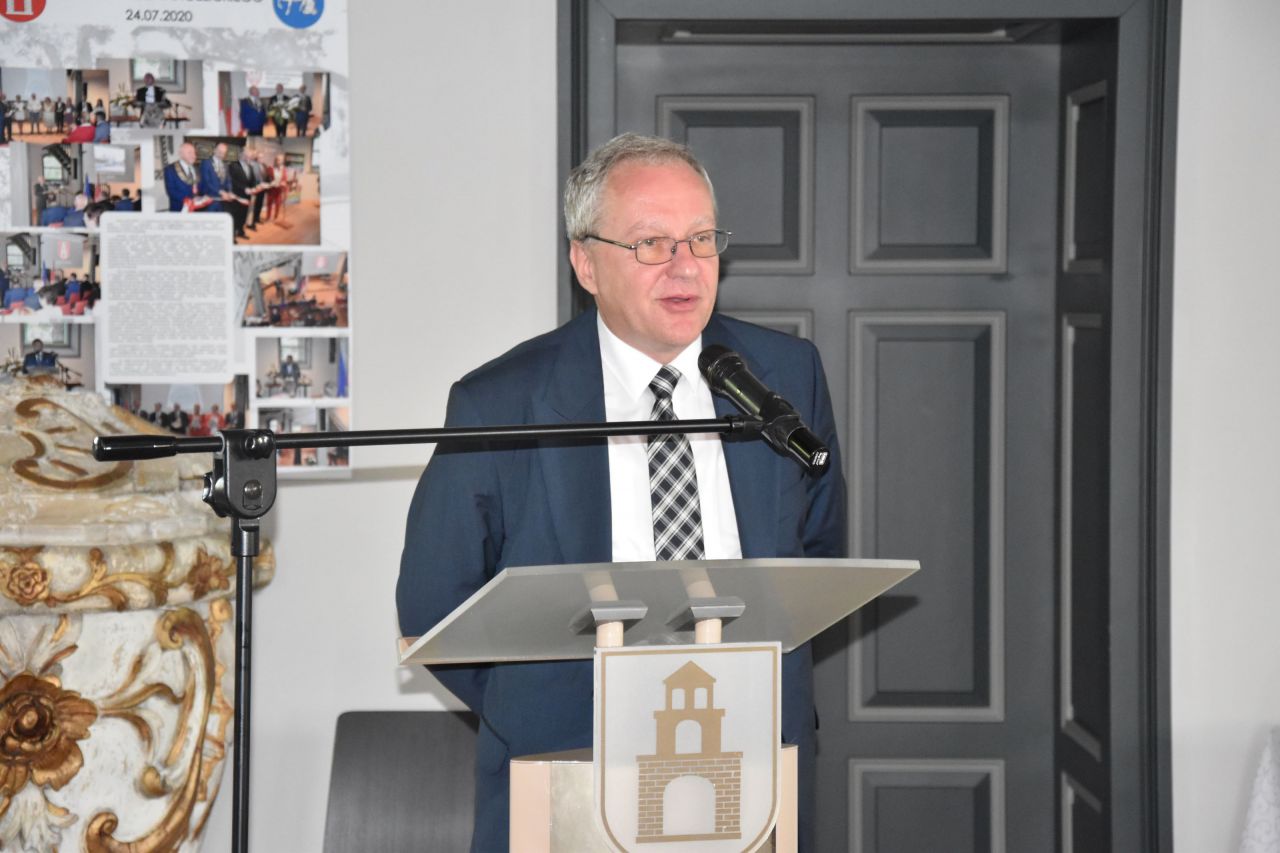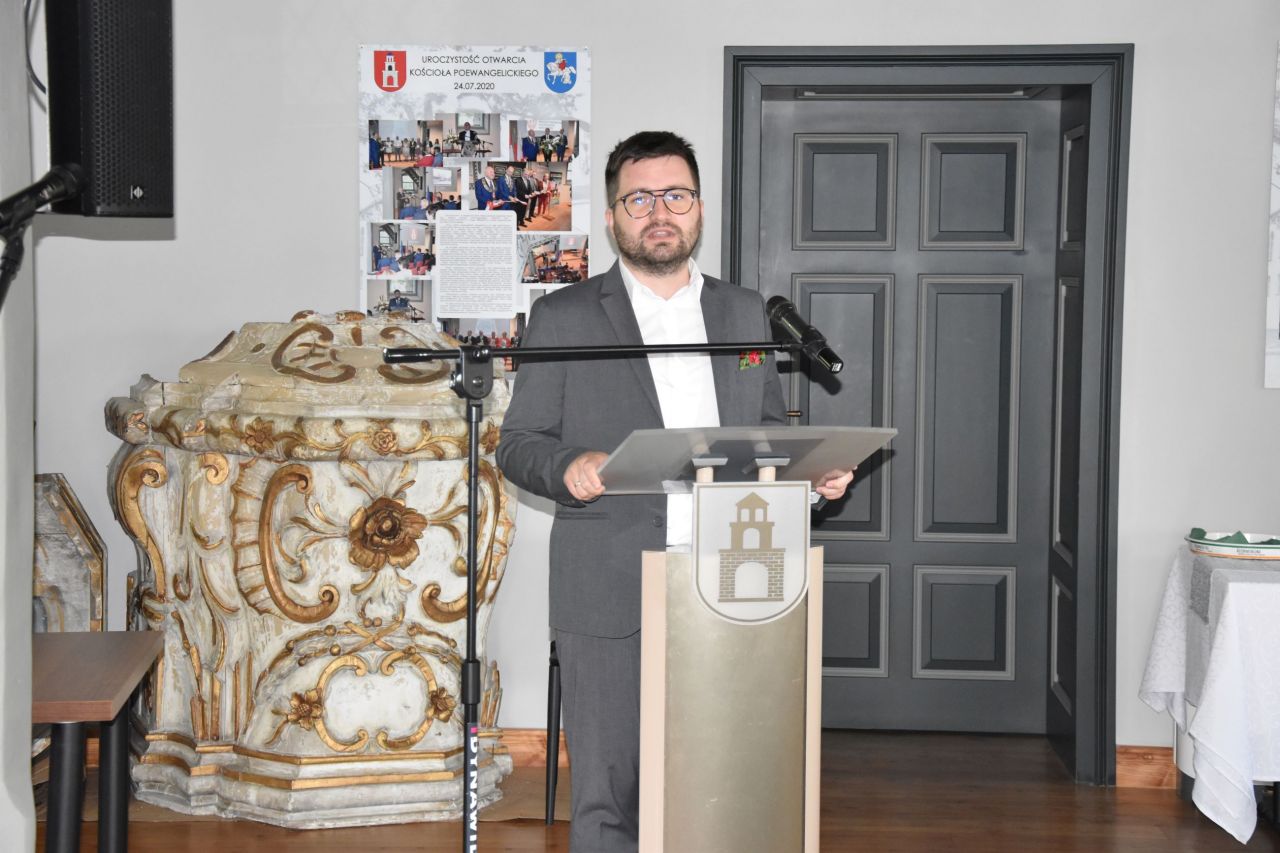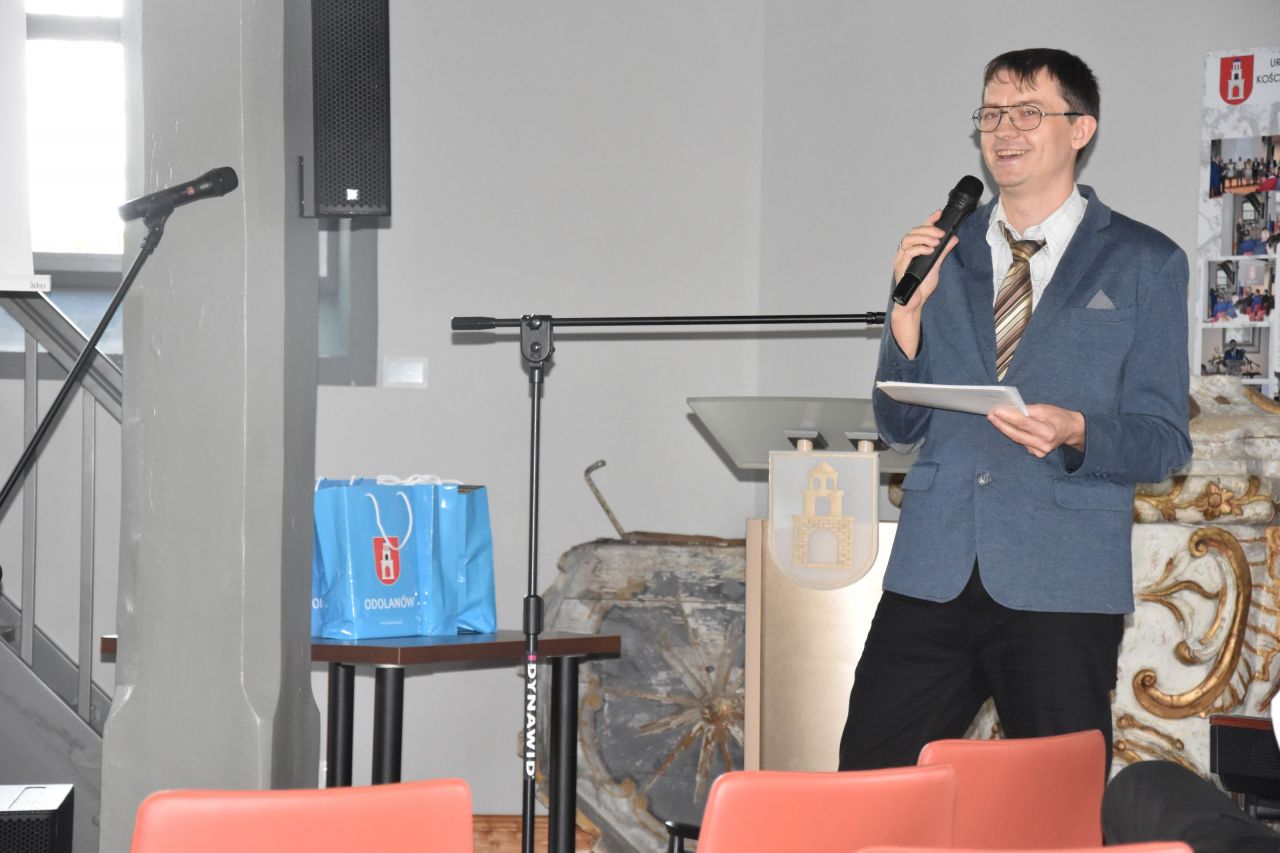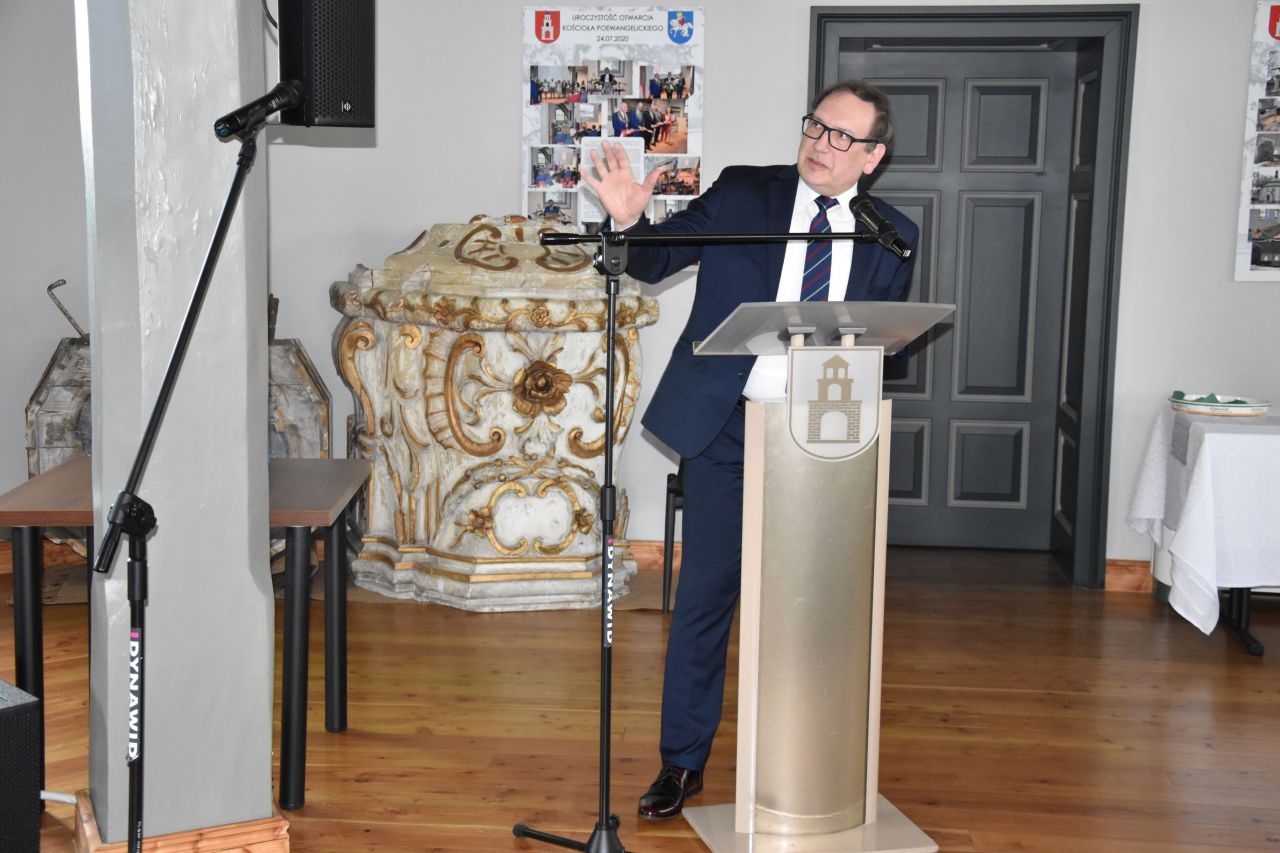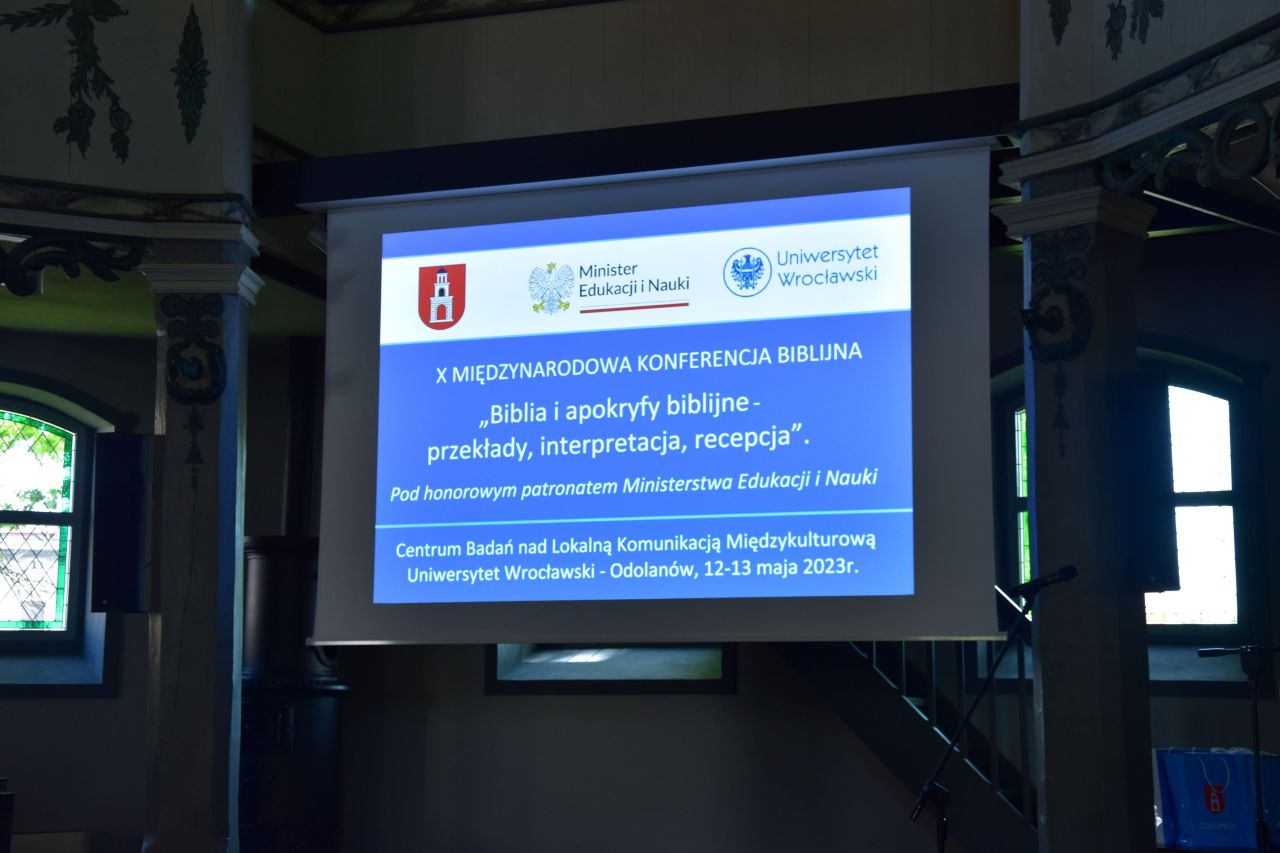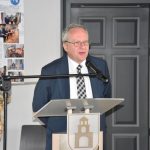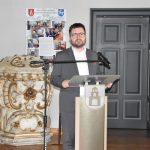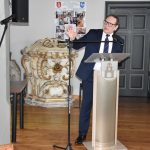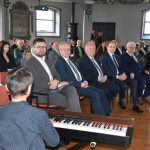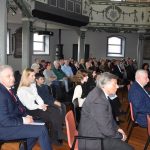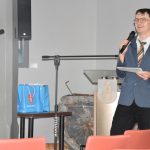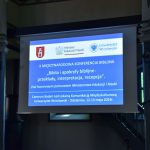
Decade of International Bible Conferences Southern Wielkopolska
For 10 years, every year in May or June in Ostrów Wielkopolski (and for 2 years also in Odolanów) an International Biblical Conference has been held, devoted to the Bible, its translations, interpretation, exegesis, and reception. They are organized by the Centre for Ancient Near East and Biblical Tradition of the Institute of Classical, Mediterranean and Oriental Studies of the University of Wrocław.
The papers presented during the session are intended to raise awareness and emphasize the great influence of the Bible on European culture. They successively show that despite the passage of time, and the evolution of our culture and civilization, the Bible still has a significant direct and indirect impact on various areas of life. The rooting of the Bible in Polish, European, and world culture is indisputable. Despite the progressing secularisation, the Bible has made such a strong impact on various aspects of life, culture, and art that it is impossible to fully understand our civilisation without understanding the biblical message, language, images, and symbols.
There is still much to discover when we realize that the Christian culture was actually shaped by three Bibles: the Hebrew, the Greek Septuagint – the bible of the first Christian communities, and the Vulgate – the Bible of the Latin West.
Since its inception, the International Bible Conference has been held in non-academic cities which led to the opening of university centers in Ostrów and Odolanów, whose task is to research local history, religious and national relations of these cities and the region on a daily basis. Thanks to the hybrid system, the Bible conference makes it possible to reach various university centers around the world, being at the same time a large local event. Dr Krzysztof Morta, scientific director of biblical conferences at the University of Wrocław, pointed out in his speech that the organizers try to invite (in addition to speakers and specialists), interested members of the local community, so there is a lively contact with outstanding scholars from around the world, with their latest research in a direct way; and at the same time, at the highest university level, it reached communities far from large university centers.
At the Ostrów-Odolanów conferences of our university, both cities have so far hosted scientists from various centers from abroad (Belgium, Germany, Italy, Norway, the United States, Romania, the Czech Republic, Slovakia, Lithuania) and from numerous leading research centers in Poland. About 300 papers have been presented so far.
Some of these lectures were included in the multi-author monograph published in 2019, edited by Krzysztof Morta, ‘The Bible in Translations and Commentaries’ (promotion took place 2 years ago). This volume contains many interesting articles on various translations of the Bible (ancient and modern), struggles with the specificity of the original text and biblical realities, as well as later allegorical and literal interpretations. The publication is decorated with illustrations from manuscripts stored in the Manuscripts Department of the University Library in Wrocław, thus enriching and supplementing the printed word. The library of the University of Wrocław holds the largest collection of medieval manuscripts in Poland and Central Europe (about 3,000 volumes). The publication also includes an article devoted to a fragment of the Chronicle of Eusebius of Caesarea found in the University Library, which dates back to ancient times and is associated with the figure of St. Jerome.
At the 10th International Bible Conference, you could listen to lectures on translation issues: Michał Wojciechowski (University of Warmia and Mazury in Olsztyn), ‘Gołąbka, Kasjana and Czarnooka – whether and how to translate biblical names’.
The lectures were given by:
- Craig Marlow (ETF Leuven) ‘Splitting Heirs: The Division in Peleg’s Time (Gen 10:25)’,
- Mihai Handaric (University of Arad) ‘The Elders of Israel and Religious Tradition in the Pentateuchal Narrative’,
- Sonia Maura Barillari (Università di Genova), ‘Le preghiere in provenzale del ms. Firenze, BML, Ashburnham 105’,
- Alessandro Norsa (Università di Verona, Università IUSVE di Venezia, Università Regina Apostolorum di Roma). ‘Il canto patriarchino and la tradizione delle lamentazioni di Geremia a Zoppé di Cadore: un’analisi religiosa e sociologica’,
- Caterina Saracco (Università degli studi di Torino), ‘San Nicola nelle Alpi: la devozione popolare a Gressoney’ (Aosta, Italy),
- Simone Turco (Università di Genova) «’Quando di due farete uno solo…’ (Vangelo di Tommaso, 113). Vangeli gnostici e dottrina dell’Uno nella controcultura inglese del Seicento»,
The solemn part of the conference, which gathered a large audience in the church in Odolanów, led by the local government (mayor Marian Janicki, vice-mayor Jan Prokop, chairman of the city council, Janusz Szustkiewicz), was also attended by representatives of the authorities of the University of Wrocław with His Magnificence Rector of the University of Wrocław, prof. Robert Olkiewicz. The conference was also attended by the former Rector of the University of Wrocław, prof. Adam Jezierski. The letter of the Minister of Education and Science was read by the General Councillor (Department of Scientific Programs and Investments of the Ministry of Culture and National Heritage), dr Tomasz Wicha, who praised the organizers for the formula of these conferences.
Author of the text: Łukasz Krzyszczuk
Translated by Milena Topolska (student of English Studies at the University of Wrocław) as part of the translation practice.
